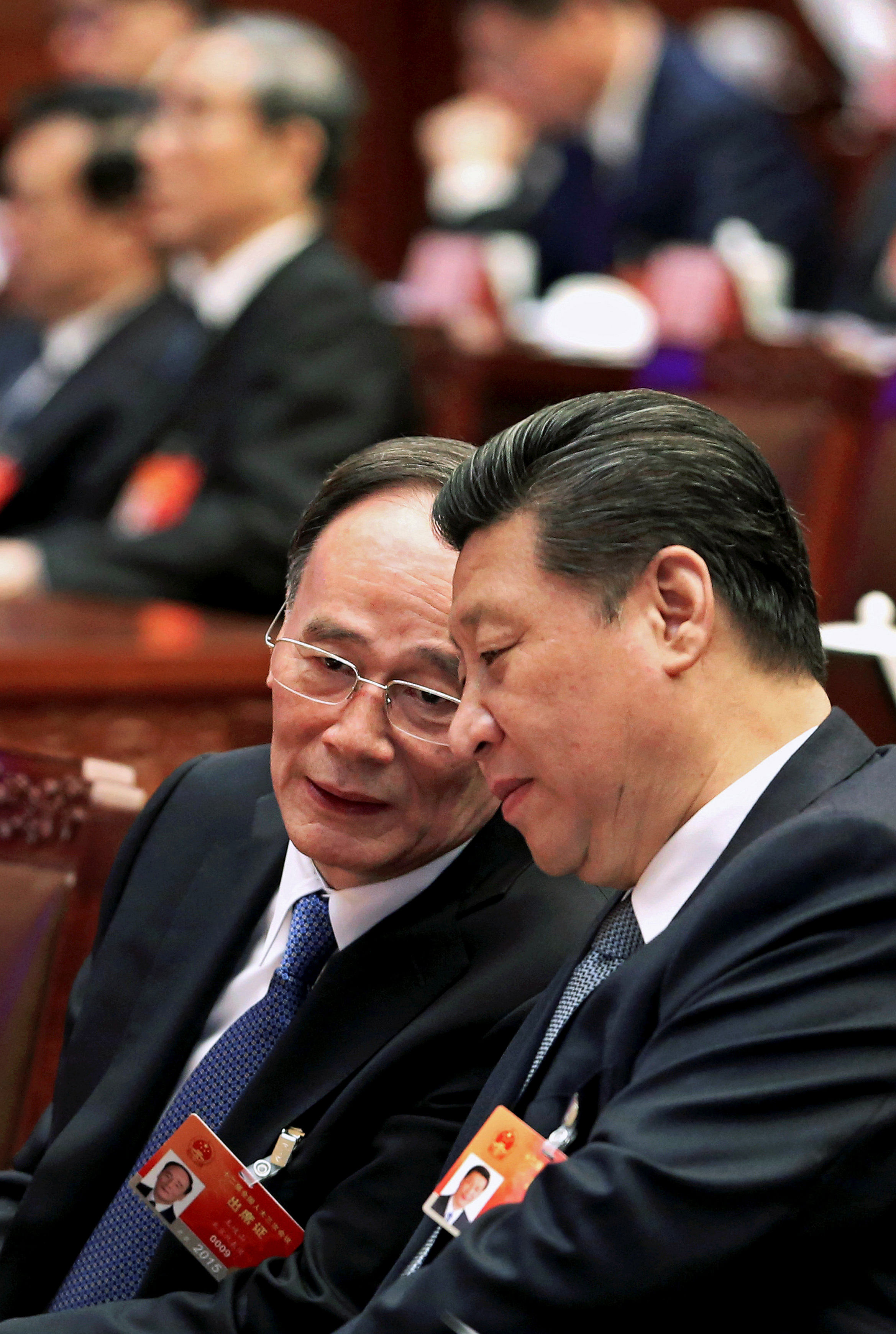President Xi Jinping already wears more than 10 leadership hats, but his latest designation as the "core" leader of the Chinese Communist Party (CCP) could rank among the most important for its potential impact on China's politics and governance, say analysts.
For one thing, it will alter the dynamics between Mr Xi and other top leaders in the seven-member Politburo Standing Committee (PSC), and in turn affect the decision-making process, especially on key issues.
"Xi, who was previously regarded as the first among equals, is now their big boss. Other PSC members will have to report to him," Hong Kong-based political analyst Willy Lam told The Straits Times.
As big boss, he said, Mr Xi might get to decide which issues are to be put up for discussion or for a vote in the PSC, and even have veto powers in the event of an impasse.
A communique issued at the end of an annual meeting of the Central Committee on Thursday named Mr Xi as the party's "core", a title that catapults him into an exclusive leadership club and signals that his authority cannot be questioned.
The term "core" - he xin in Chinese - first surfaced in 1989 when Deng Xiaoping used it to describe himself, Mao Zedong and then party chief Jiang Zemin as leaders of their generations.
Mr Xi's predecessor Hu Jintao was referred to only as the party's "general secretary".

At a briefing yesterday on the meeting's key outcomes, the party's deputy propaganda chief Huang Kunming said there was "a high level of consensus" on Mr Xi's elevation. "The move carries deep and long-term significance in safeguarding China's continued stability and prosperity," he said.
Analysts expect Mr Xi to have a stronger hand now to assemble a new leadership team in order to push reforms in areas such as military restructuring where he has faced resistance.
At next year's 19th Party Congress, nearly half of the 25 Politburo members are set to step down as they will have reached the unofficial retirement age of 68. In the current PSC, only Mr Xi, 63, and Premier Li Keqiang, 61, can stay on.
University of Chicago analyst Yang Dali told The Straits Times that Mr Xi's elevation may prompt low-ranking and regional leaders to switch their support to him.
Some say Mr Xi may even use his new authority as "core" leader to extend the tenure of CCP disciplinary chief Wang Qishan, a close ally, who turned 68 in July.
More importantly, the odds are now higher that Mr Xi may not step down when his second five-year term ends in 2022 and may get to pick his own successor - two factors that will ensure continuity in policy direction.
Dr Lam noted that unlike the other "core" leaders, Mr Xi has not been described as "the nucleus of his generation" - which some take to mean that he has the leeway to serve more than two terms.
"The most important thing about Xi's title is that it transcends tenure, role or age. He is the core of the party forever," Dr Lam added.
Analyst Li Cheng of the Brookings Institution in the United States does not see how Mr Xi can contemplate a third term, given that he will be under pressure to abide by the leadership succession norms set by Deng.
Professor Li also dismissed talk that conferring "core" leader status on Mr Xi signals the return of the strongman rule of Mao and the end of the collective leadership framework under Deng.
-
Forum to shed light on new leaders
-
President Xi Jinping has been anointed a "core leader" of the Chinese Communist Party.
How will this affect the top-level reshuffle in the party next year?
What will it mean for China's policy direction?
Veteran China expert Wang Gungwu and other speakers will explore these topics at The Straits Times' upcoming Global Outlook Forum.
Titled 2017: New Leaders, New Challenges For Asia, the forum will be held on Nov 29.
To sign up, go to http://str.sg/globaloutlook.
The deadline is Nov 16.
"It's too premature to predict what might happen six years later. Also, Xi faces very strong institutional constraints," Prof Li, author of Chinese Politics In The Xi Jinping Era: Reassessing Collective Leadership, told The Straits Times.
Nottingham University analyst Steve Tsang noted that Mr Xi's "core" leader status is balanced by the communique's emphasis on "collective leadership". "It means the party establishment as a whole does not want him to be a strongman and to exercise near-dictatorial power. The tension remains and may well intensify in the run-up to the 19th Party Congress," he told The Straits Times.
Mr Xi will also need to be wary of potential " potholes", say analysts.
As "core" leader, he will be held accountable and may have to shoulder most, if not all, of the blame should things go wrong, especially in such contentious issues as territorial disputes.
Also, people will expect results.
Mr Xi will have to produce "social, economic and political deliverables", said Professor Kerry Brown, director of the Lau China Institute at King's College in London.
"These things, not grand titles, are what this leadership will sink or swim on," he told The Straits Times.
